
The goldendoodle is a crossbreed between a golden retriever and a poodle originally developed in the late 1960s to serve as guide dogs for those allergic to dogs. Goldendoodles vary in size because of the poodle's size variations. The breed typically has curly, hypoallergenic hair and hardly sheds thanks to its non-shedding poodle ancestors. Goldendoodles are highly intelligent, athletic, and lovable dogs that are great with kids and other pets.
Learn more about the beloved goldendoodle to decide if it's the right dog for you and your family.
The goldendoodle is known for their affectionate personality and willingness to please, making this a popular choice for families. Due to their gentle temperament and high trainability, they have been used as pets, agility dogs, guide dogs, therapy dogs, diabetic dogs, and search and rescue dogs.
Goldendoodles were first bred in 1969 to be guide dogs, but the breed gained popularity among breeders during the 1990s. This designer mix was bred to combine the poodle's non-shedding coat with the golden retriever's desirable temperament.
The idea for the crossbreed was inspired by the successful breeding of the Labradoodle, a poodle and Labrador retriever hybrid. As one of the most popular domestic dog breeds in the United States, the golden retriever was an obvious choice for crossbreeding with the delightfully hypoallergenic poodle.
The first three dogs to earn the American Kennel Club Obedience Champion title after its introduction in 1977 were golden retrievers, which proves their loyalty and ease of trainability poodles were originally bred as retrievers and water dogs, and both are among the smartest dog breeds. These genes pass on to the goldendoodle, so owners can expect an athletic, intelligent, and obedient companion.
Though they're not high-maintenance dogs, goldendoodles require adequate exercise, grooming, and training. They make great house pets but enjoy plenty of time to play and explore outdoors. A fenced yard is ideal for goldendoodles to romp around, but they shouldn’t be kept there all day. This social breed thrives with their family and friends inside.
With average to above-average energy levels, goldendoodles require daily exercise and love to go for walks, runs, hikes, and swims. Their playful nature and retriever genes make them great fetch partners, too. Owners should aim for at least 30 minutes of exercise each day including walking, running, swimming, and tackling agility courses.
The goldendoodle's coat varies, but is often somewhere between the two parent breeds when it comes to grooming. Though goldendoodles don’t shed excessively, they still need to be brushed regularly to remove dead hair and prevent matting. To keep their skin and coat healthy, they need a moisturizing bath every few months. Depending on the dog, a goldendoodle may grow long hair over the eyes or between the toes, so appropriate trimming is required.
Goldendoodles are obedient, athletic, and smart so they take well to training and are eager to please. Agility comes to them naturally and courses are a great place for goldendoodles to burn energy and create a strong bond between owner and companion. They respond best to positive, reward-based training and will gladly show off their tricks for a tasty treat.
Goldendoodles tend to have excellent health if bred responsibly. They may inherit health problems associated with poodles and golden retrievers, but crossbreeding may reduce the chances of some health problems due to their genetic diversity. In your puppy search, it’s important to find a reputable breeder who is committed to breeding healthy dogs.
Because goldendoodles are active, they need a high-quality diet to keep them happy, strong, and energetic. Look for dog foods high in protein and healthy fats with meat as the first ingredient. They should be fed measured meals twice a day rather than free-feeding, which can cause weight gain.
Check with your local animal shelter or rescue group to see if there's a goldendoodle available for your home. The IDOG Rescue, Inc., group is dedicated to finding new homes for all types of doodles, including Goldendoodles, that need a loving family. Big Fluffy Dog Rescue also includes goldendoodles in the type of dogs that it rescues.
If you're interested in buying a goldendoodle puppy, find a reputable and responsible breeder and watch for signs of a bad or backyard breeder. The Goldendoodle Association of North America provides a list of breeders on its website.
The goldendoodle is an intelligent, loyal, and affectionate dog that thrives in active homes, especially those with kids. They're fairly easy to train and have relatively low-maintenance care.
Like goldendoodles? You might also enjoy these breeds:
Learn even more about our favorite furry friends by checking out additional dog breed profiles.
No. Goldendoodles are popular dogs, but they are not rare. The only potentially rare goldendoodles are ones with all black or merle coats, thanks to the intricacies of genetics.
Goldendoodle coats come in a variety of colors and markings. Merle refers to a variegated pattern on a goldendoodle's coat. (Note that the merle gene may cause blindness and deafness.) Other names for patterns include parti (half white with patches), phantom (distinct markings on chest and other areas), brindle (stripes), and abstract (solid color with white markings).
The word "furnishings" seems like an odd choice of a word to describe facial hair features for dogs, but that's just what it means. The characteristic furnishings typically found on goldendoodles include longer than usual eyebrows, mustaches, and beards that make the dogs look so adorably scruffy.
If you buy a goldendoodle from a breeder, be prepared to spend on average between $2,000 to $3,000 or even more for a mini or a merle goldendoodle. This dog is expensive because it takes breeders a lot of genetic engineering to produce these beautiful dogs.

Tetanus in Dogs
Tetanus is an infection caused by bacteria found in soil. It can cause severe symptoms in dogs and even lead to death if not treated promptly.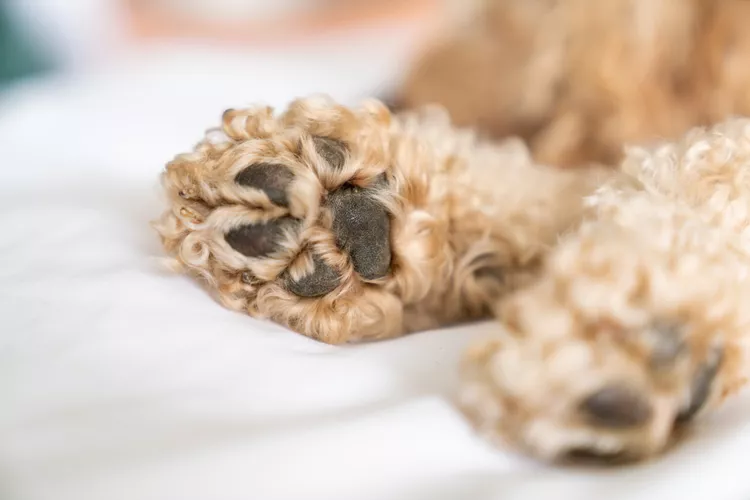
8 Common Dog Paw Problems
It is important to check your dog’s paws regularly for any issues and take steps to keep them healthy and protected.
Common Injuries in Dogs and How to Treat Them
Learn about the most common injuries in dogs—whether in their legs, spine, tail, or eye—and how you should treat them with this helpful list.
Can Cats Eat Strawberries? How to Safely Share This Summer Berry
Although cats are primarily meat eaters, strawberries may be an interesting and tasty snack for your feline friend. Find out the risks of feeding strawberries to cats and how to safely let your cat enjoy this fruit.
Is Shrimp Bad For Dogs?
Shrimp can be a healthy, nutritional food for people but can dogs eat them, too? What are the main concerns with feeding shrimp to your dog?
Dog Food Basics
Are you feeding your dog the best way possible? Check out these dog feeding tips to keep your dog healthy and happy.
Rhodesian Ridgeback: Dog Breed Characteristics & Care
The Rhodesian ridgeback is a large hunting dog with a high prey drive. Learn about the breed's history, exercise needs, and more.
Berger Picard: Dog Breed Characteristics & Care
The Berger Picard is a French herding dog with a friendly smile and shaggy beard. Learn about its history, health, exercise needs, and more.
Spanish Water Dog: Breed Characteristics & Care
In the hands of an expert owner, the Spanish water dog shines as an active and faithful companion. Learn about its history, training, and more.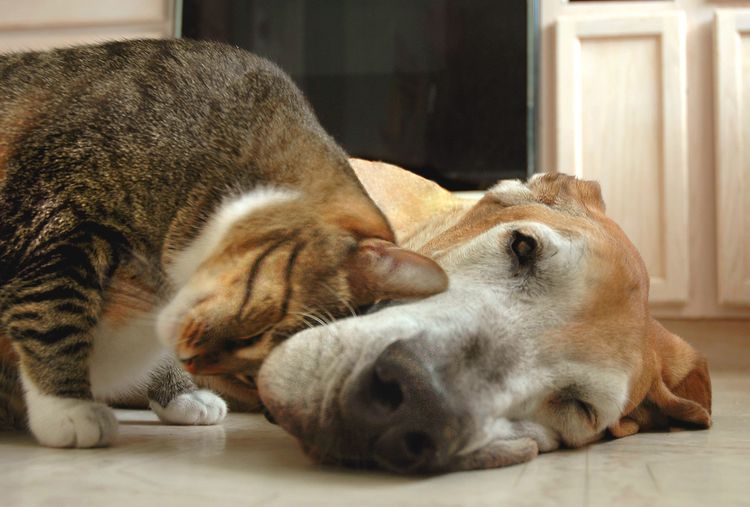
Cat Bunting Behavior: What Does It Mean?
Cats rub their heads against prominent objects to leave scent markings as a part of scent communication.
How to Train Your Cat to Stop Urine Marking
Most male (and some female) house cats will mark territory at some point. Learn the causes or cat urine marking and how to prevent this annoying behavior.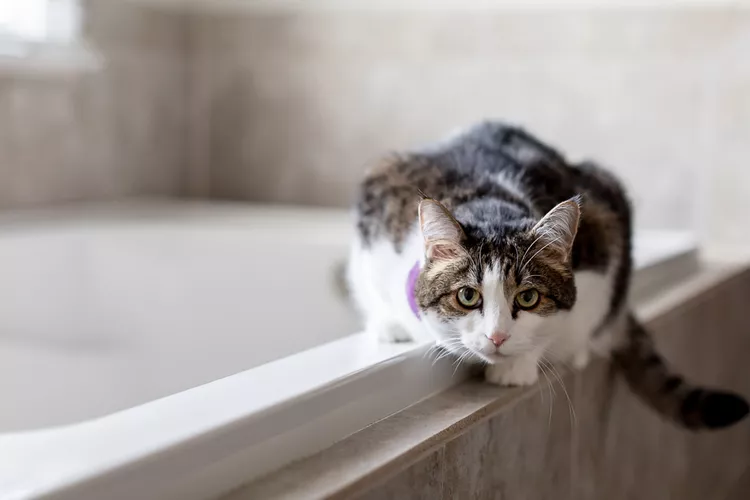
7 Reasons Why Cats Love Bathrooms
Why do cats follow you to the bathroom? Many cats—strangely enough—love the bathroom! Find out why cats seem to love bathrooms so much.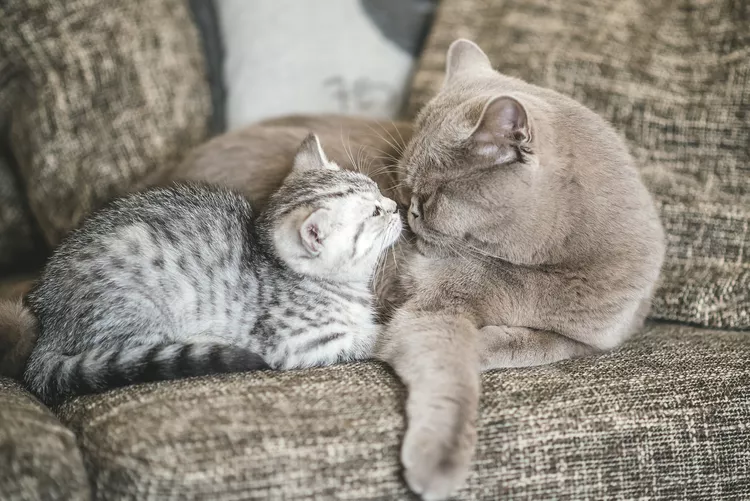
Leptospirosis in Cats
Leptospirosis is rare but potentially fatal in cats. Learn the causes, treatment, and prevention.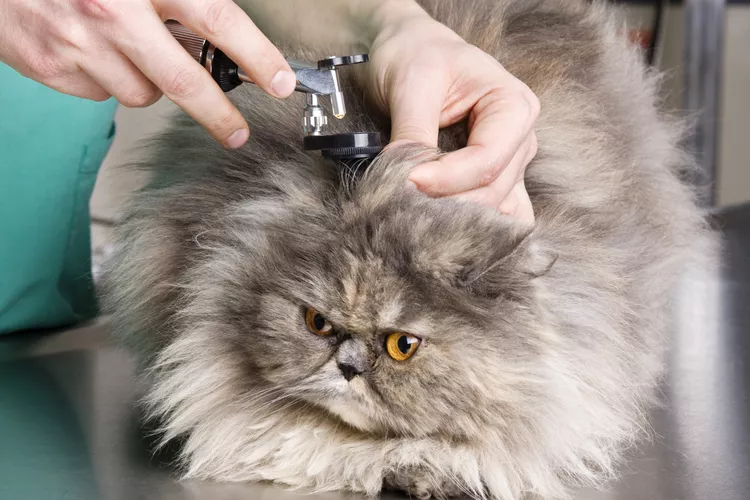
Ear Infections in Cats
An ear infection must be treated based on the source of irritation, which may be internal or external. Learn the causes, treatment, and prevention.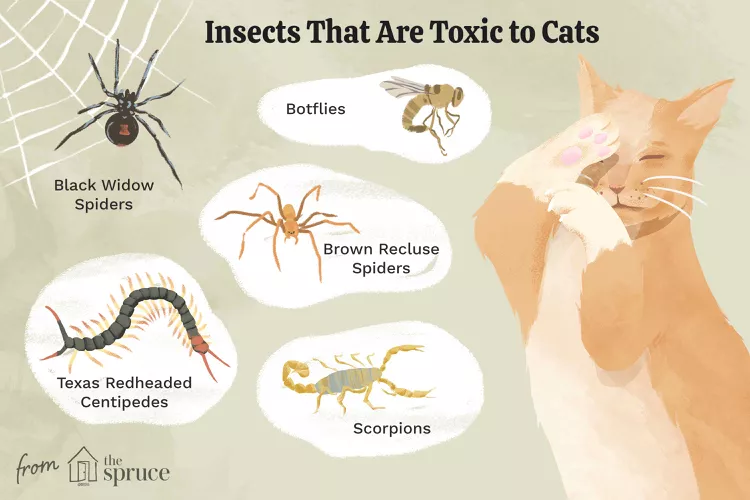
Insects That Are Toxic to Cats
Can cats eat bugs? Some bugs can cause injury or illness to your cat, while others are relatively harmless.
Testing for Contagious Feline AIDS (FIV)
Cats should be tested for the contagious feline immunodeficiency virus or FIV. Cats that are positive for the virus usually live normal lives.
Why Does My Dog Pee on My Bed?
Is your dog peeing on your bed? Find out why your dog is having urinary accidents on the bed and learn what to do about it—plus how to stop the habit.
Why Almost Any Dog Can Do Agility Training
Why Almost Any Dog Can Do Agility Training
How to Train Your Dog to Shake Paws
Shaking paws is a fun dog trick that most dogs pick up rather quickly Learn how to train your dog to shake in just a few simple steps.
14 Asian Cat Breeds And Their Rich Hiss-tories
Find out more about the cat breeds that originated from Asia. Some breeds include the Persian, Oriental shorthair, and Japanese bobtail.